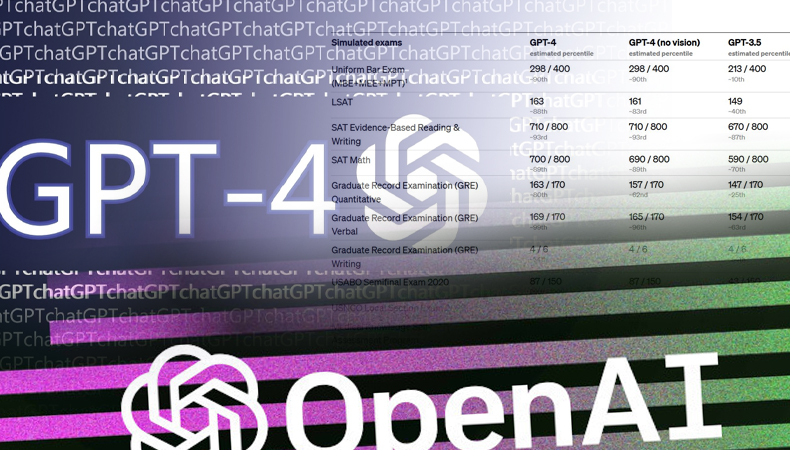In the World’s Toughest Exams, GPT-4 Outperforms and Outclasses 90% of Humans

During the showcase of GPT-4, OpenAI demonstrated that a modified version of ChatGPT running on GPT-4 performed better than most humans on some of the toughest exams in the US.
The new AI language model in GPT-4 has made all sorts of headlines in the hours since it was released, mainly because of its unbelievable abilities. OpenAI’s Sam Altman described the GPT-4 as “more reliable, creative, and capable of handling much more nuanced instructions” than its predecessor, GPT-3.5.
Read | Report on Silicon Valley Bank Collapse: 6 US banks are under review by Moody’s
As part of the launch, OpenAI showcased several demos that demonstrated what GPT-4 is capable of, and how it differs from ChatGPT3.5.
🤯🤯Well this is something else.
GPT-4 passes basically every exam. And doesn't just pass…
The Bar Exam: 90%
LSAT: 88%
GRE Quantitative: 80%, Verbal: 99%
Every AP, the SAT… pic.twitter.com/zQW3k6uM6Z— Ethan Mollick (@emollick) March 14, 2023
A modded version of ChatGPT running on GPT-4 was demonstrated to have outscored and outperformed 90% of humans on some of the harshest US exams.
According to the report, GPT-4 is a large multimodal model (accepting image and text inputs, emitting text outputs) that exhibits human-level performance on various professional and academic benchmarks. However, it is less capable in real-world scenarios.
Compared to GPT-3.5, it passes a simulated bar exam with a score around the top 10% of test takers, according to representatives from OpenAI.
According to the company, the AI model also scored 93rd on an SAT reading test and 89th on an SAT math test.
OpenAI’s data shows GPT-4 cleared LSAT with 88 percent, GRE quantitative at 80 percent, and GRE verbal with 99 percent. GPT-4 passes almost all the exams it takes, and that too with flying colors.
Several startups have signed up to use the API of GPT-4 after seeing how well the AI bot performed in these demos.
Some of the companies that have signed up to use OpenAI’s new GPT-4 include the language-learning program Duolingo and online education company Khan Academy.
The things we can do with OpenAI’s technology now will shape the future of education,” said Luis von Ahn, CEO, and Co-founder of Duolingo.
“I believe AI will allow us to eventually replicate the experience of a human tutor and scale it to everyone in the world, even if most people are unable to access one-on-one tutoring. Having these new features available to millions of Duolingo learners is a real treat for me,” he said.




